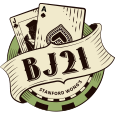Excerpt from new book: "Venture Cafe"
Making Educated Guesses
The personality traits that make a person feel comfortable taking a risk on a high-tech start-up are very similar to those that make one comfortable with other forms of gambling, including blackjack. And at MIT, the blackjack players have organized themselves into an underground community that is very similar to the community of entrepreneurs that exists at the Muddy Charles Pub.
MIT's Blackjack Team, or card-counting club, attracts new members by stapling photocopied flyers onto bulletin boards around the institute. While the club has no official affiliation with the institute, no one on the MIT campus bats an eyelash when ten or fifteen students and alumni commandeer an empty classroom and play a few games of cards. "It's definitely not superorganized," a current card counter tells me. "It's more of a fly-by-the-seat-of-your-pants kind of thing. There is no faculty involvement whatsoever."
Because of the necessity of keeping one's card-counting skills hidden from the dealers at casinos, who prefer to play with those people who are more likely to lose, members of the MIT card-counting club tend to keep a rather low profile, often drifting in and out of the club over time. "It's not really a club," my contact emphasizes. "It's more of a team�a money-making venture. I think for most of the students it's a way to have fun and get a little cash for school. You have to be either a dropout or an alumnus to make it a serious endeavor."
Serious card counters understand that if they want to get good, they must spend a considerable amount of time playing blackjack, practicing hand signals, and developing trust relationships with fellow team members. The trust relationships are extremely important in the business of card counting because the most difficult thing about playing organized blackjack is making sure that dealers never figure out what is actually going on. Once a casino has identified a person as a card counter, the person's name and likeness are immediately circulated on something called the Griffin list, which, I am told, has the power to keep people out of casinos for the rest of their lives.
Casinos have good reason to be wary of card counters, because if blackjack players reach a certain level of proficiency, they can actually tip the odds in their favor.
If a person goes out onto the casino floor without any understanding of the rules of blackjack, he is likely to lose an average of $2 or $3 each time he lays down a $100 bet. A person who uses a technique called "basic strategy" to decide whether or not to request a new card is likely to lose an average of 33 cents every time he lays down a $100 bet.
The game of blackjack becomes interesting, and even profitable, when a blackjack player realizes that the probability of being dealt a winning hand changes depending on which cards have already been dealt. If a skilled blackjack player can train himself to keep track of those cards that have already been dealt, he can use this information to determine whether or not he is likely to be dealt a winning combination in his next hand.
If a blackjack player determines that all of the tens, jacks, queens, kings, and aces in a given deck have already been dealt, he can choose to wager a very small amount of money or avoid betting entirely. If, on the other hand, a blackjack player observes that a great many ones, twos, threes, fours, fives, and sixes have already left the deck, he may choose to increase the amount of money he puts on the table to take advantage of the fact that the cards remaining are likely to be tens, jacks, queens, kings, and aces.
It takes a great deal of study and a great deal of hands-on training to get good enough at counting cards to tip the odds in one's favor. The city of Las Vegas is itself a sizzling, smoking, flashing-neon-light reminder that the vast majority of would-be card counters fail miserably. But there are some people who enjoy math for its own sake and who enjoy the applied mathematics of casino gambling in particular. These are the people who spend weeks, months, and even years studying blackjack and casino gambling in an effort to determine, in any given card game, whether or not the next hand is likely to be a winner.
Skilled card counters know that if they can avoid becoming distracted by the free drinks and scantily clad women long enough to count cards, calculate the odds of winning, and make informed decisions about how much to wager, they can tip the odds in their favor. Instead of losing $3 each time they put down $100, a skilled card counter can actually win money.
How much a card counter wins depends on the amount of money that is being put to work and the numbers of bets that the card counter is willing to make. My contact tells me that in recent years the MIT black-jack team was gambling with approximately $1.5 million, built up from an initial investment of some $200,000. At one point the club had so much cash to put to work and so few card counters that they were forced to "push the max," playing up to a maximum bet of $15,000. "You'd do maybe one hand of a grand to two hands of $10,000," my contact remembers. "We had more money than the casinos would let us play with."
As long as the casinos are convinced that the card counters are no more than ignorant hicks taking a break from betting on hog futures to play a few hands of blackjack, they will do whatever it takes to keep the card counters around. My contact tells me stories of free food, free booze, and complimentary hotel rooms offered in the vain hope that the high rollers' luck will eventually change.
A skilled card counter must work very hard to convince jaded blackjack dealers that it was nothing more scientific than their lucky rabbit's foot that caused them to win so much money and that they really are putting their life's savings at risk when they decide to play another $10,000 hand. For if a card counter should slip up and reveal that he is being paid to make bets with a bankroll of his own and other people's money, his card-counting career will come to an abrupt end.
This is what happened to Semyon Dukach: He became so good at counting cards and won so much money that the casinos eventually caught on to his technique. Once Dukach's likeness was circulated on the notorious Griffin list�a report compiled by Las Vegas detective agency Griffin Investigations Inc.�he had no choice but to hang up his aces and look for a new game.
Dukach could still teach new kids how to count cards, and he was welcome to invest his own money in the club's communal kitty. But now that he was "burned out," the adrenaline rushes were reserved for the younger kids.
With card counting no longer an option, Dukach put some of his winnings into a high-tech company called Fast Engines, whose mission was to reduce the amount of time it takes to reach Web sites on the Internet. And the more time Dukach spent on his high-tech start-up, the more he began to like it. "You can't just make money," Dukach tells me. "You have to feel like you're doing something good for the world. I am very proud of creating this thing called Fast Engines."
The good work that Semyon did involved bringing together a group of really great people. "I had that in blackjack as well�a sense of teamwork with the people that we went to the casinos with and the people that I trained and organized. But there was nothing that we really created together. It was kind of like a quick thrill. We went, we played, we made money. It was fun, but we weren't creating real value. Whereas here, as a group, we can be proud of the product. We can be proud of the customers using the product, making their lives easier, making their Web sites faster. I mean, we have this thing that's really fast, and that generates pride as well."
Dukach has reason to be proud of the work he did at Fast Engines: in March 2000, the company was acquired by Adero, Inc. for an amount that the company's investors could feel very good about.










